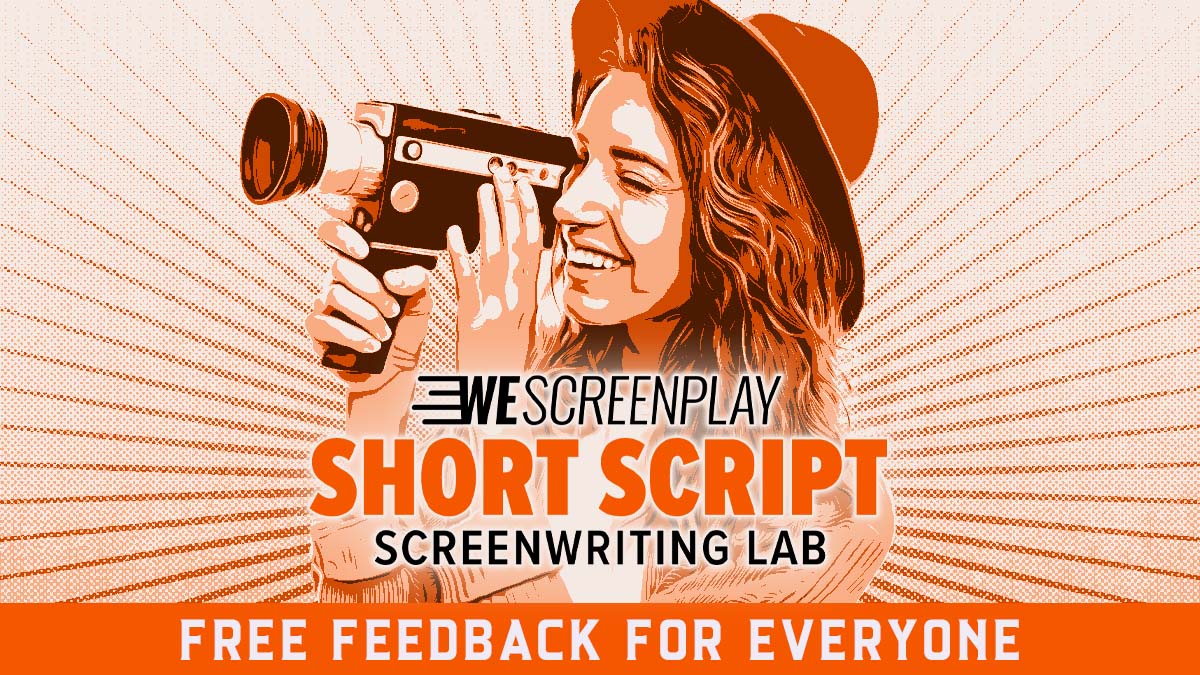
It starts with an idea – the one they’re going to remember you for. So you jot it down, flesh it out, outline it beat-for-beat until you’re ready to actually write the damn thing, which, eventually you do. And then you sit back, put on your readers cap, and apply your own (impeccable) taste to what you’ve written. Maybe you get others to read it too – maybe you even get professional coverage. Then it’s on to draft two, and beyond until…
You’re done.
Better yet, you’re satisfied. It might not be perfect (yet), but it’s about as close as you’re going to get for now. The question is: what’s next? How do you prevent that masterpiece from slowly collecting dust at the bottom of a desk drawer? How can you make sure your masterpiece actually gets read? Especially if you’re without representation, which is true of the vast majority of emerging writers.
Inevitably, all paths lead to one. Sooner or later, you start thinking about grants, fellowships, and contests – dream-factories to which your screenplay is your golden ticket. You enter one – or five – confident that the product of your blood, sweat, and tears stands a decent chance at taking home the top prize (which it absolutely could). You wait with baited breath, counting down the days until the contest results, and then…
… Disappointment. The sting of it.
Luckily for you, that’s where this post comes in. Because we’ve all been there (or at least, I have). We’ve all felt that soul-crushing disappointment. And while some of us eventually become success stories, it’s important to remember that not every runner wins his or her first race. Or their fourth or fifth.
Besides, I’m here to tell you that winning really isn’t the point anyways. I mean – fair enough, it sort of is the point (all those submission fees don’t come cheap, after all). But it’s not the only point. There are others. At least four, by my count.
So, without further adieu, let’s take a look at why contests matter, even (and perhaps especially) when we don’t win.
Learning to Handle (and Embrace) Deadlines
Think of your ideal writing setup. I don’t know about you, but my mind instantly jumps to a house on a lake, with a fat residual check allowing me to write at my own pace without any sort of deadline whatsoever. There I am, sitting back and fiddling with every detail to my heart’s content – adjusting beats, fine-tuning scenes, nitpicking individual lines of dialogue – whatever it takes until it’s good and done. On my schedule, of course.
Trouble is, such a work ethic rarely translates into timely, finished material, and I’d hazard a guess that it’s a big part of why so many amateur writers get caught up on long-gestating screenplays and novels that take years and years to write. As the great Orson Welles so eloquently put it, "The absence of limitations is the enemy of art".
Deadlines exist for a reason. They keep us on time, and they keep us honest. And part of the reason the best writers in Hollywood are so employable is precisely because they are dependably prolific. In other words, they deliver. They deliver routinely, reliably, and without much cause for worry. And for a stressed studio executive with three different tent-poles on his or her plate, that’s a big plus.
“But quality over quantity”, you say, and to some extent, I agree. But let’s not make “greatness” the enemy of the “good”. The truth is, we writers are naturally a perfectionist bunch, and we’re unlikely to make much progress without a deadline staring us down in the face. It’s better we learn to embrace them, and meet them head on.
A Simulated Marketplace
Lee Unkrich, director of Toy Story 3 and the upcoming Coco said this of his experience at film school: “It’s run in many ways like a studio. The challenges that were given to us had to do with the realities of the industry… and I think those were important lessons to learn.”
Much like the best film schools, the competitive element of a screenplay competition, along with the process of having your script read and judged by professional readers, comes surprisingly close to actually mimicking the structure of the industry you’re so eager to enter. It’s simple, really. In the real world, the spec marketplace works in much the same way: you submit a script to potential buyers (or have your agent do it for you), then spend days biting your nails as a roomful of readers and creative executives decide whether it's the right fit.
Exposing yourself to this sort of competitive, marketplace environment in a comparatively low-risk environment is essential to your development as a writer. This industry takes a thick skin, which is something that’s much easier to develop within the more predictable confines of a well-run contest or fellowship.
Spending Money to Make Money
Look, the fact of the matter is it’s always easy to play the cynic. Screenwriting is an incredibly competitive field, and while contests offer an additional way to get your name out there on the basis of merit, not everyone wins, despite the fact that everyone pays. But think about this – even disregarding the full-time costs associated with running a contest (hiring quality readers, hosting events, organizing prizes, fostering industry connections, etc), can you think of any meaningful hobbies or professions that come entirely without cost?
We're writers – though for many of us, writing remains a hobby. That's the point – to develop our craft to the level where we can turn our hobby into a full time career. It’s tough, and it can be expensive. Master classes, film schools, books on saving cats and the fundamentals of myth. But isn’t that true of most worthwhile pursuits? Think about the training required for any prestigious profession. How many doctors do you know (in America, at least) that didn’t spend something in the neighborhood of six figures on education and training?
Contests give us a reason to write – an opportunity to develop our crafts, and submit ourselves to a professional standard of judgment. Paying for professional coverage achieves something similar. It gives us a platform for our writing – a platform that forces us to sit down and get it done. And better yet, it gives us a sense of how we’re performing amidst our piers. And, as any writer knows, that feedback, that sense of motivation and direction, is essential. For me, at least, it more than justified a handful of submission fees per year.
Which brings me to my last point…
Learning by Doing
It’s the only way to improve your craft. Because at a certain point, raw talent can only take you so far, and the same can be said for that pile of screenwriting books beside your desk.
If you really want to be a screenwriter, chances are its because you love movies. I mean, really love them. More importantly, you understand them – deeply. You have good taste, and a keen ability to separate the wheat from the chaff. That’s why it can be so discouraging to read something you’ve written only to settle upon the realization that it doesn’t really live up to your own high standards.
Think about it this way, though: if you can tell there’s a problem, chances are you can also tell what that problem is, which is the first step towards fixing it. That’s all rewriting is, really. Diagnosing a problem (or having others do it for you), then figuring out how to best solve it.
That is what learning is. It’s how we eventually close that quality-gap between the stuff we like, and the stuff we write. The catch? You can’t edit something that you haven’t actually written. Motivation can be hard to come by without the promise of a paycheque or some form of recognition. Screenwriting competitions offer us the possibility of both – a carrot on a stick, so to speak. And if that's enough to get you through that pesky first draft, then such a value can't be discounted.
















